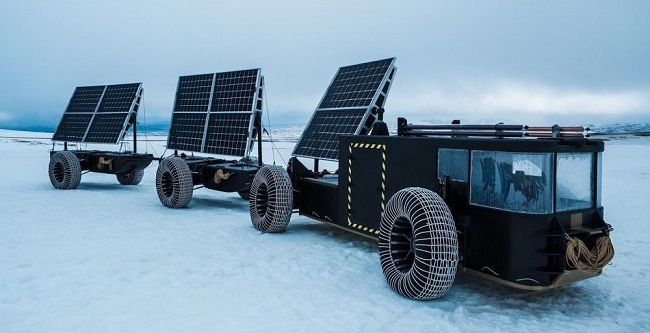A new vehicle, powered by the sun and made from plastic waste, is set to explore Antarctica.

A team from Clean2Antarctica has built a vehicle, named the Solar Voyager, to explore Antarctica to learn from the continent’s sustainable nature.
The Solar Voyager is built from plastic waste and is powered by the sun by ten solar panels to ensure the journey is sustainable. The vehicle is lightweight and has vacuum pipes that can melt the ice. It weighs around 1,485 kilograms and is 16 metres long.
The expedition, starting in November, will begin at Antarctica’s base camp and from there the explorers will make a journey of 2,400 kilometres across an icy desert to the South Pole and back.
Antarctica contains 90 per cent of the world’s ice and is zero waste by law. The explorers from Clean2Antarctica want to learn from this zero-waste zone and make sure it stays this way. They also hope to raise awareness for the Antarctic treaty, which if not extended in 2048 will put the continent at risk for commercial exploitation.
They successfully tested the vehicle in Iceland earlier this year and the journey to the South Pole will begin on November 26th. The team have a blog that will be updated throughout the expedition.
Clean2Antarctica said: “We want to accelerate the transition to a circular society because it is the right thing to do. We need to venture out into the unknown, since we don’t exactly know how to build a circular society. Therefore, we need to experiment. Our expedition will result in new building blocks that will help us to build a circular society.”
By Rachel Cooper, Climate Action
